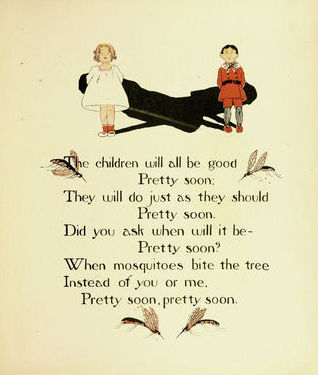[Note: see important update/P.S. at end].
As you may recall, I wrote a piece last week for City Journal taking issue with various calls around the liberal blogosphere for having the McCain-Palin campaign investigated or even prosecuted for supposed incitement to violence against its opponents (a charge for which credible evidence appears severely lacking in the first place). Along the way, I criticized a Concurring Opinions post by University of South Carolina associate professor Susan Kuo in which Kuo first endorsed the charge that the Republicans were engaged in “character assassination” and “peddling fear, hate, and outrage to an audience that appears highly susceptible to this message” and then helpfully laid out potential theories under which criminal liability might be assigned to inflammatory campaign speech of such a sort. I said I found it bizarre that Kuo entirely omitted mention of the First Amendment to the U.S. Constitution, and went on to cite a relatively recent (1982) case in which a unanimous Court had cited the First Amendment as protecting even fairly extreme language of incitement which was soon thereafter followed by actual violence. These circumstances, I concluded, virtually ensure that no American court would countenance a prosecution of McCain, Palin, or their campaign staffs for incitement on current evidence absent a rapid and spectacular change in Constitutional jurisprudence from its present stance.
Now Professor Kuo has responded in a new post at Concurring Opinions by calling me names. She writes that it was predictable that “the Thought Police” — she links that phrase to my piece — would quickly emerge to “chastise” her “for committing crimethink”.
Before turning to this amazing charge and unpacking its heavy freight of irony, let’s dispose briefly of a couple of Kuo’s incidental points. First, she claims I champion the idea that “the mere existence of the First Amendment invalidates the notion of criminal liability for political speech”. In fact, as even a hurried reading of my post should have revealed, I made just the opposite point: I noted that there are some circumstances (such as, but not necessarily limited to, intent to incite violence combined with co-ordination with those who commit the bad acts) where notwithstanding the Amendment political speech can cross a line into crime. I also noted that reasonable minds could differ about whether the Supreme Court drew the line on incitement in the right place in its 1982 case. In short, Kuo attributes to me an extreme position of her own invention.
Kuo also suggests that her post merely laid out a hypothetical (or “thought experiment”) about what the law might do as opposed to prescribing what it should do. I have no problem with hypotheticals and have been known to use them myself, recognizing that they can be (though I don’t think they were in this case) a bracingly non-normative device in which the actual prescriptive views of the narrator are irrelevant or impossible to discern. I simply think this hypothetical was rendered both bizarre and misleading by its omission of the First Amendment, by which the courts of this land have greatly curtailed the scope of criminal liability for incitement.
Now back to the question of who should get tagged with the dismissive Orwell-invoking cliche “Thought Police”. Let’s review the bidding. Sarah Palin and GOP surrogates stir up controversy by using blunt and divisive language to question Barack Obama’s judgment in the Bill Ayers matter. Voices around the liberal blogosphere then call for Palin & Co. to be criminally investigated and even prosecuted for riding this campaign issue too hard. Kuo, entering the debate, does not call these bloggers and Huffington Post writers “Thought Police” for suggesting that speech that offends them be subject to legal sanction, but instead conveys their views uncritically if not sympathetically. She then takes up her hypothetical of possible enforcement action against McPalin, outlining theories under which prosecutors might bring such charges and judges might agree to impose punishment, but does not label these hypothetical prosecutors or judges “Thought Police” for punishing the impassioned expression of political opinion. No, the only time the Thought Police make an entrance at all is after the fact, when someone presumes to criticize her. Only then does she detect, with fearful intake of breath, the sound of the hobnailed boots ascending the stairs. And it turns out to be that scary libertarian bogeyman, me!
I suppose I should take offense, but I haven’t managed to get past the comic aspect (& Ambrogi, Legal Blog Watch).
Important P.S.: I heard from Prof. Kuo herself this afternoon and we had a talk that was pleasant and in no way confrontational. She said her second post, to which this one responds, was dashed off in a spirit of light-hearted banter and that the last thing she meant was to call names or give insult. Obviously, it came across differently to me, and I reacted as one might to a seriously meant attack. As I noted, almost everyone who blogs has had the experience of writing something intended as funny that fails to register that way with part or all of the audience. And it’s probably also true that, as someone tender of my libertarian credentials, I’m especially apt to have my buttons pushed by any suggestion of being cast as Thought Police. Anyway, I’m glad to take Prof. Kuo at her word when she says she meant no offense, and I hope commenters at this site as well as Concurring Opinions will do the same (see also update post).
Filed under: Barack Obama, free speech, John McCain, politics, Sarah Palin

